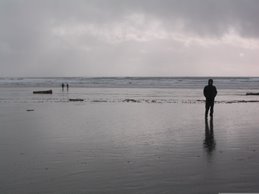Read the Article Here
I should note that while he may come across as a crackpot in some of the things he says, we are quickly approaching a point where we will have no choice and some of these things that we deem so important to our lives (such as that thing called the economy which is apparently more important that anything else) will collapse on their own and we'll be faced with even larger problems.
As Lindorff writes,
[i]nstead of thinking of ourselves as consumers and competitive free agents, we need to start thinking of ourselves as passengers on a boat that is sinking. If we all run for the lifeboats and life preservers and fight to see who can be saved, the life vests will be torn and ruined and the lifeboats will fall into the sea and sink. In the end, we’ll all go down. If, on the other hand, we change tack, recognize that we’re all in this together, and make orderly plans to save ourselves collectively, we may all be able to get away.Lately it has been very troublesome for me to listen to people spout off how An Inconvenient Truth has opened their eyes and then watch them do all sorts of things that contribute to the problems Mr. Gore was describing. Often they will justify it somehow. The economy has always been a reason not to change our way of life. But the logic behind inaction and half measures may turn out to be human kinds biggest blunder. For starters, the economy is worthless without the life systems that support it. A 1997 study (which has been mentioned over and over recently) found that the earth's ecosystem did approximately $33 trillion worth of work (including but not limited to purifying water, providing energy to grow plants, and pollination). At that time, the global GNP was $18 trillion - just more than half of what the ecosystem provided. Without this ecosystem, we would have a much harder time sustaining our economy.
A second argument against the economy excuse is very simple and straightforward. If we destroy our ecosystem we are potentially destroying our ability to live in it. What use is money to a species which does not exist? Many people do not believe this is possible. To them, the problems are with the polar bears and the frogs. How can that possibly affect us? And even if it does we have technology. Right? Though I am no expert, I do not believe that a mass migration to Mars or beyond will be possible in a way that maintains any semblance of our way of life.
Some may also point to the market to solve our problems. In theory, the market could solve a lot of these problems (with proper government control). But we don't have a free market. What we have are large monopolies that spend most of their profits convincing us that we need things we don't need so that their profits remain high. My question is: why is money so important that we have to work ourselves so hard? Sure, money pays for food, clothing and shelter, but do we really need those other things? Are we better off spending our time on more fulfilling things (like spending time with family and friends)?
The article hits one point on the nose as well: we are only taking half measures to try to solve these problems. As if a switch to cloth bags will somehow take carbon dioxide from the air. We do these little things to assuage ourselves of the guilt we have when we fill up our gas tanks.
Lindorff is right, we need to rethink our society. A band-aid solution won't save you when air pollution is lethal (which some would argue it already is in many parts of the world).
The bottom line is that we've all contributed to the problems humanity is now facing. But we are all part of the solution. We have let consumerism get the better of us for some time now. We have become disconnected with the world and the people around us. With creative and inspired leadership (and there is some hope for this) we may find a way. We need to stop thinking about what is best for "me" and start thinking about what is best for "us."
The old adage goes: "There's no I in team," and right about now, our species needs to take that advice to heart, or like Lindorff says, we could rip apart the life jackets.





No comments:
Post a Comment